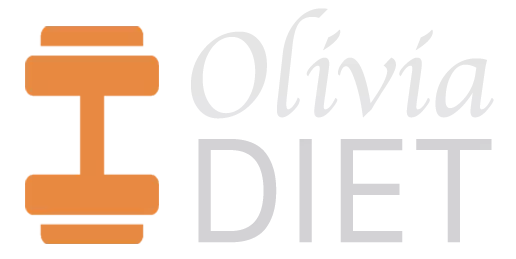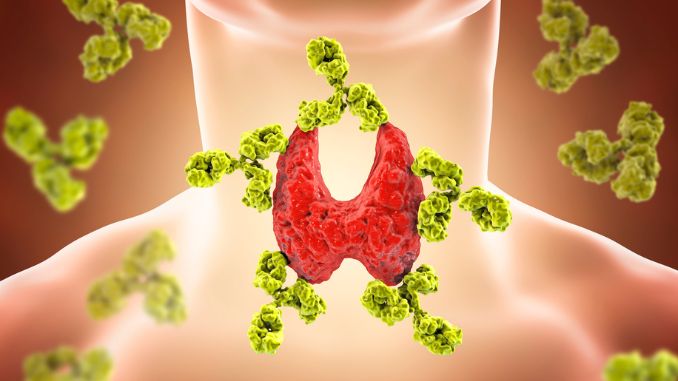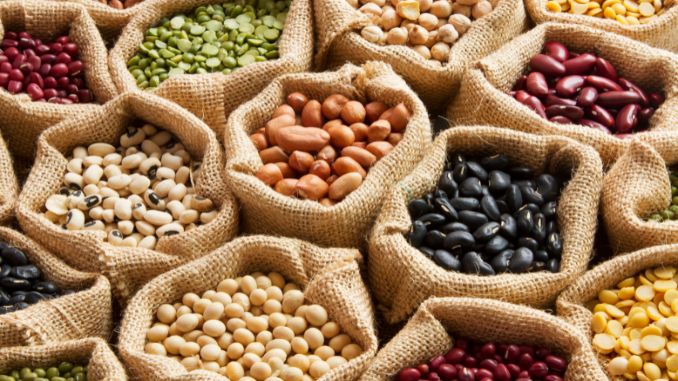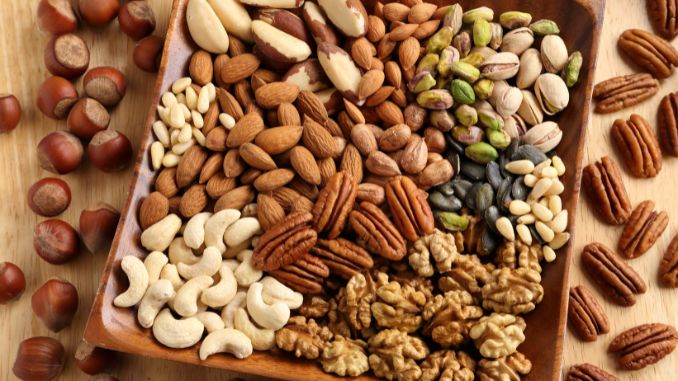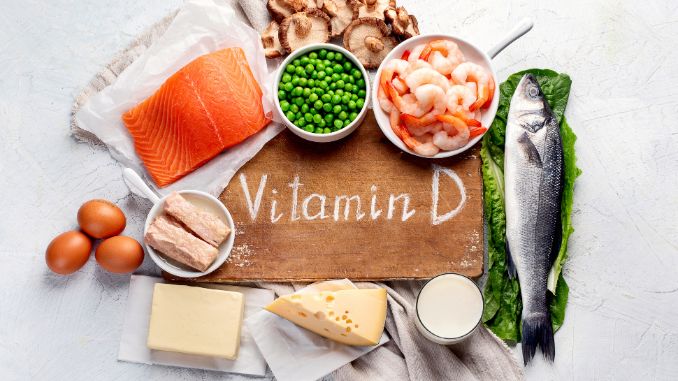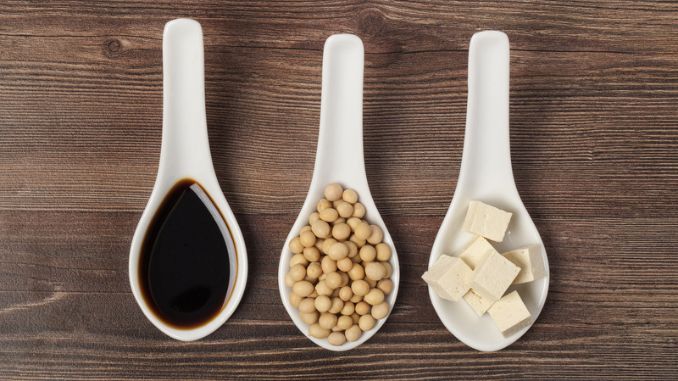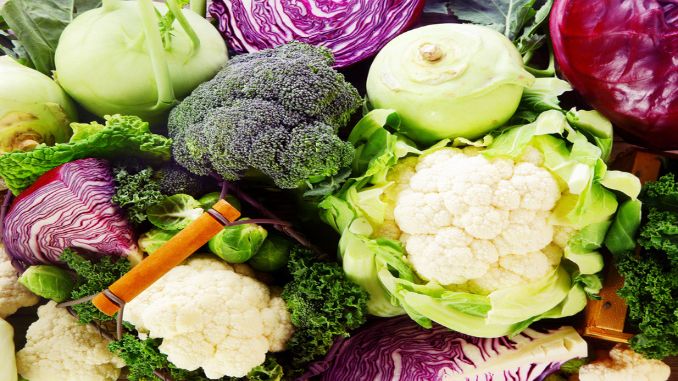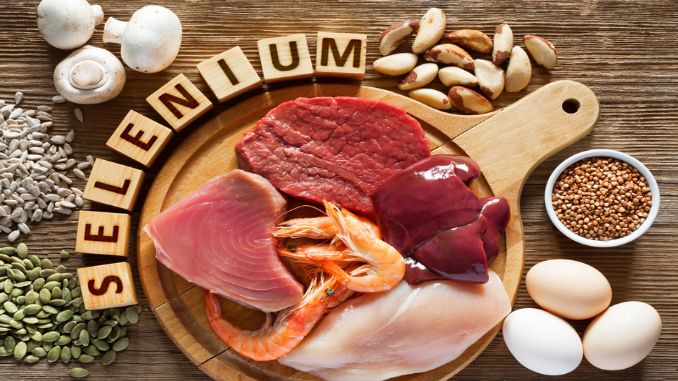The Hashimoto’s Thyroiditis Diet Tips to Revamp Your Health and Wellness
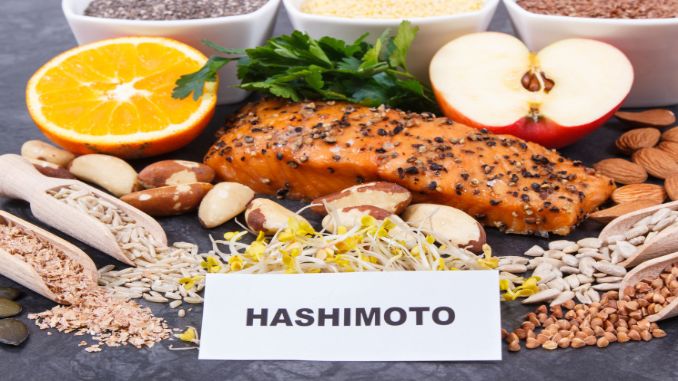
Last updated on April 4th, 2025 at 07:36 pm
Have you been struggling with Hashimoto’s thyroiditis and looking for ways to improve your health and wellness? Hashimoto's Thyroiditis Diet is what you need.
Hashimoto’s Thyroiditis is an autoimmune disease that can cause people to feel tired, gain weight, and lose hair. However, changing your diet and way of life can help control your symptoms and improve your health.
This article covers the top health tips from Hashimoto’s diet. From avoiding trigger foods to adding nutrient-dense foods, we’ll talk about everything you need to support your thyroid health and feel your best. Let’s explore this important issue.
The Role of Diet in Managing Hashimoto’s Thyroiditis
Dietary changes can play a significant role in managing Hashimoto's thyroiditis. People with Hashimoto's disease should focus on consuming a well-balanced diet rich in nutrients such as iodine, selenium, and zinc.
Iodine is a mineral essential for the proper functioning of the thyroid gland. However, people with Hashimoto's should not consume excessive amounts of iodine as it may worsen the condition.
Selenium is another essential mineral that can help reduce inflammation in the thyroid gland. It can be found in Brazil nuts, seafood, and eggs.
Zinc is also important for thyroid health as it produces thyroid hormones. Foods such as oysters, beef, and pumpkin seeds are good sources of zinc.
People with Hashimoto's should also focus on eating anti-inflammatory foods, such as fruits, vegetables, and foods high in omega-3. These foods can help reduce inflammation in the body and promote overall health.
On the other hand, people with Hashimoto's should not eat goitrogenic foods because they may stop the thyroid from making hormones.
Some people with Hashimoto's may also feel worse when they eat foods with gluten, so it's best to stay away from those foods.
Foods to Include in Your Diet if you have Hashimoto’s Thyroiditis
People with Hashimoto's often experience symptoms such as difficulty concentrating. A healthy diet can help manage symptoms and improve overall health. Prioritizing a nutrient-dense diet is part of a Hashimoto's-friendly diet.
Below are the best foods for people suffering from Hashimoto's thyroiditis:
- High-Fiber Carbohydrates
- Healthy Fats
- Protein-rich Foods
- Dairy and Non-dairy Substitutes
- Vitamin D-rich Foods
- Spices, Herbs, and Condiments
- Beverages
A. High-Fiber Carbohydrates
High-fiber carbohydrates are essential to a healthy diet, especially for people with Hashimoto’s thyroiditis.
Fiber is a type of carbohydrate that is not digested by the body. Instead, it passes through the digestive system, helping to regulate bowel movements and maintain healthy gut bacteria. High-fiber carbohydrates are rich in vitamins, minerals, and antioxidants, which are vital for overall health.
Many people with Hashimoto’s disease may benefit from a high-fiber diet because it can help regulate blood sugar levels, reduce inflammation, and improve gut health.
Consuming high-fiber carbohydrates can slow down the release of glucose into the bloodstream, which can help stabilize blood sugar levels and prevent fluctuations. Therefore, it can help modulate the immune system.
1. Fruits
It is important for people with Hashimoto's thyroiditis to choose the right fruits for their thyroid health. Fruits high in fiber that can help regulate digestion and prevent constipation are:
- Apples
- Oranges (citrus fruits)
- Pineapples (should be consumed in moderation)
- Blueberries
- Cranberries
- Prunes
- Plums
- Kiwis
- Grapes
- Cherries
- Bananas (should be consumed in moderation)
- Strawberries (Berries should be consumed in moderation)
- Cranberries
- Blackberries
2. Non-starchy vegetables
Non-starchy vegetables are low in carbohydrates and high in fiber, making them a good choice for people with Hashimoto’s disease who may be looking to manage their blood sugar levels.
Some examples of non-starchy vegetables include:
- Colorful bell peppers
- Zucchini
- Cucumber
- Asparagus
- Mushrooms
- Carrots
- Beets
Leafy Greens:
- Spinach
- Kale
- Collard greens
- Arugula
Cruciferous vegetables such as Brussels sprouts must be consumed in moderation and cooked well.
These non-starchy, anti-inflammatory vegetables contain essential vitamins and minerals, such as vitamins C and K and potassium, which help support immune function and reduce inflammation.
In addition to their nutrient-dense properties, non-starchy vegetables are also rich in antioxidants.
Focusing on variety and balance is important when incorporating non-starchy vegetables into your diet. Include variously colored vegetables in your meals, as each color contains different antioxidants and nutrients.
3. Starchy vegetables
Starchy vegetables provide essential nutrients and are a great source of complex carbohydrates, which are important for maintaining energy levels throughout the day.
Some starchy vegetables that are particularly beneficial for those with Hashimoto's thyroiditis include:
- Sweet potatoes
- Yams
- Squash
- Pumpkin
- Peas
- Acorn
These vegetables are rich in vitamins A and C, Hashimoto's thyroiditis diet which helps support a healthy immune system, and potassium, which is important for regulating blood pressure and heart health. Additionally, they contain fiber, which promotes healthy digestion and can help regulate blood sugar levels.
Choosing fresh and in-season produce is important when incorporating starchy vegetables into your diet. This ensures that you are getting the most nutrient-dense vegetables possible.
Also, preparing them in a way that preserves their nutrients is important. Steaming or roasting vegetables is a great way to retain their nutritional value and enhance flavor.
4. Gluten-Free Grains and Whole Grains
A gluten-free diet is often recommended for those with Hashimoto's thyroiditis.
Gluten is a protein found in wheat, barley, and rye. For people with Hashimoto's, consuming gluten can trigger an immune response that worsens symptoms. Eliminating gluten from the diet can reduce inflammation and improve nutrient absorption, which can help alleviate Hashimoto's symptoms.
However, ensuring you're still getting enough whole grains in your diet is important. Here are several gluten-free grains and whole grains that can be included in Hashimoto’s thyroiditis diet.
- Quinoa
- Buckwheat
- Certified gluten-free oats
- Brown rice
- Wild rice (manoomin, Canada rice, Indian rice, or water oats)
- Millet
5. Few Legumes
Legumes are a great source of plant-based protein, fiber, and nutrients, making them an ideal addition to any diet.
Some legumes that are particularly beneficial for individuals with Hashimoto’s thyroiditis are:
- Chickpeas
- Black peas
- Lentils
- Beans (Black beans, etc.)
When adding legumes to your diet, it's important to do so slowly because a sudden increase in fiber can make your stomach hurt.
Ensure the legumes are cooked properly because they have lectins and phytates that can make them hard to digest if not removed. These substances can be removed from legumes by soaking, sprouting, or cooking them. This makes them easier to digest.
Beans and lentils are low in fat and cholesterol, making them very beneficial for those with Hashimoto’s thyroiditis. You can add them to salads, soups, stews, and chili. You can also use them as a meat substitute for tacos, burritos, and spaghetti sauce.
Lentils are also a great alternative to rice or pasta and can be used as a base for salads or mixed with vegetables for a tasty side dish.
When choosing beans and lentils, looking for organic, non-GMO varieties is essential. Canned beans and lentils can also be a convenient option, but choosing brands that are BPA-free and low in sodium is important.
The best way to cook beans and lentils is from scratch, so you can control what goes into them and leave out any additives or preservatives.
6. Seeds, nut butter, and nuts
Seeds, nut butter, and nuts are some of the best food options for people with Hashimoto's disease. These seeds contain omega-3 fatty acids, fiber, and essential minerals like magnesium and zinc, such as:
- Pumpkin
- Chia
- Flaxseeds
These nutrients are essential for thyroid function and can help reduce inflammation. Consuming seeds in your Hashimoto's thyroiditis diet can also help regulate blood sugar levels, preventing insulin resistance, which is often seen in people with Hashimoto's.
Nut butter is an excellent source of protein, healthy fats, and fiber. A few examples are:
- Brazil nuts
- Almond
- Cashew
- Peanut butter
- Macadamia nuts
- Hazelnuts
These nutrients can stabilize blood sugar levels and reduce inflammation in the body, which helps manage Hashimoto's symptoms. Nut butter can also be a great option for people who are lactose intolerant, as it is a dairy-free source of calcium.
Nuts can help support the immune system and improve energy levels. They are packed with nutrients like selenium, a mineral necessary for thyroid hormone production.
B. Healthy Fats
People with Hashimoto's thyroiditis may benefit from including healthy fats in their diet. Healthy fats can help reduce inflammation, a common symptom of Hashimoto's.
If you have Hashimoto's disease, omega-3 fatty acids, monounsaturated fats, and medium-chain triglycerides (MCTs) are all healthy fats you should add to your diet. These can be found in the following:
- Fatty fish (salmon, sardines, mackerel)
- Flaxseeds
- Chia seeds
- Avocados
- Olive oil
- Almonds
- Walnuts
- Vegetable oil (coconut oil, palm kernel oil, safflower oil, sunflower oil, and corn oil)
Keep in mind that not all fats are created equal. Trans and saturated fats, often found in processed and fried foods, should be limited as they can increase inflammation in the body. Instead, focus on incorporating healthy, nutrient-dense fats into your meals and snacks.
C. Protein-rich Foods
A high-protein diet has a positive impact on thyroid function.
Protein-rich foods provide the body with the essential nutrients it needs to maintain a healthy metabolism and regulate blood sugar levels, which is important for individuals with thyroid disease who may be at a higher risk of developing diabetes.
It also prevents muscle loss, a common side effect of thyroid disease. Consuming adequate amounts of protein is important to support their overall health.
Adding foods like the ones below, which are high in protein, to your diet helps you reach your diet goals.
- Lean meats
- Fish
- Eggs (Consumed in moderation)
- Legumes
1. Animal Protein/Lean Meats
Consuming animal protein and lean meats is essential for maintaining healthy thyroid function. But a healthy thyroid function is even more crucial for people with Hashimoto's disease. Lean meats such as the following can positively affect hormone balance:
- skinless chicken breast
- fish
- lean cuts of beef
- pork
- lamb
Regarding animal protein, it's essential to choose lean meats to avoid excessive fat intake. Excessive fat intake can lead to weight gain and potentially affect thyroid function.
2. Other Protein Source Foods
There are many protein-rich foods that people with Hashimoto's disease can include in their diet to influence thyroid function positively. Since Hashimoto's disease causes inflammation, leading to an underactive thyroid gland.
Other than meat and dairy, here are some excellent sources of protein.
- Lentils
- Chickpeas
- Black beans
- Almonds
- Walnuts
- Cashews
- Chia seeds
- Flaxseeds
- Quinoa
- Amaranth
- Brussels sprouts
They're rich in fiber and other nutrients that influence thyroid function.
D. Dairy and Non-Dairy Substitutes
A dairy-free diet can be a healthy and viable option for people who are lactose intolerant or have a dairy allergy. Some non-dairy substitutes provide the same nutritional benefits as dairy products.
Milk substitute:
- Almond milk
- Soy milk
- Coconut milk
Nutritional yeasts can be used as a substitute for macaroni and cheese in dishes.
For those who enjoy yogurt, there are several non-dairy options available, such as:
- Soy yogurt
- Coconut yogurt
- Almond yogurt
These products are made with plant-based ingredients and often contain probiotics for digestive health.
Even though non-dairy products can be just as healthy as dairy products from a nutritional standpoint, they may not always be a direct replacement. Therefore, checking the labels and ensuring you get the necessary nutrients is important.
Additionally, some people may have allergies or sensitivities to certain non-dairy substitutes, so it's important to consult a healthcare professional before making any major dietary changes.
E. Vitamin D-rich Foods
Low vitamin D levels are more likely to lead to an increased risk of developing autoimmune diseases. Incorporating vitamin D-rich foods into the diet is vital in managing Hashimoto's thyroiditis.
Fatty fish such as salmon, tuna, and mackerel are excellent sources of vitamin D. A serving of cooked salmon provides 400 IU of vitamin D, which is more than half the recommended daily intake. Other seafood options, like oysters and shrimp, are also good sources of vitamin D.
Egg yolks are another great source of vitamin D. A single large egg yolk contains around 40 IU of vitamin D. It's important to note that most of the vitamin D in an egg is found in the yolk.
Mushrooms are the only plant-based source of vitamin D, and they can provide up to 400 IU of vitamin D per serving. However, not all mushrooms are the same regarding vitamin D content. Some mushrooms, such as shiitake and portobello, are exposed to UV light during growth, which increases their vitamin D.
Fortified foods such as milk and orange juice can also be good sources of vitamin D. Most of these foods have added vitamin D2, which isn't as good as vitamin D3 at raising vitamin D levels in the blood. However, they can still be a good option for those unable to get enough vitamin D from natural sources.
F. Spices, Herbs, and Condiments
Spices, herbs, and condiments can be very helpful in treating Hashimoto's disease and other thyroid gland disorders. They improve the flavor of your food and positively impact your health.
One of the most effective spices for managing Hashimoto's disease is turmeric. This spice has anti-inflammatory properties that can help reduce inflammation associated with thyroid disease.
It also helps regulate the immune system, preventing further damage to the thyroid gland. Turmeric also has antioxidant properties that can help protect the thyroid gland from oxidative stress.
Another herb that is beneficial in managing Hashimoto's disease is ashwagandha. It's known for its adaptogenic properties, which help the body adapt to stress. Hashimoto's disease can cause a lot of stress on the body, and ashwagandha can help reduce stress levels.
Certain condiments, like apple cider vinegar, can also help manage Hashimoto's disease. It improves digestion, and a healthy digestive system is essential for properly absorbing nutrients, which can improve thyroid function.
G. Beverages
People with Hashimoto's disease must be mindful of the beverages they consume. Avoiding alcohol and caffeine and choosing water, herbal teas, bone broth, and fresh juices can help support thyroid health.
There are several beverages that individuals with Hashimoto's disease can consume.
- Water is essential for hydration and can help flush out toxins from the body.
- Herbal teas such as chamomile, ginger, and peppermint have anti-inflammatory properties and can help promote relaxation.
- Bone broth is another excellent beverage choice for individuals with Hashimoto's disease. It contains essential nutrients such as collagen and amino acids that support thyroid health.
Fresh vegetables and fruit juices can provide vitamins and minerals to support overall health.
Foods to Avoid in Your Diet if you have Hashimoto’s Thyroiditis
People with Hashimoto's thyroiditis are told to eat a certain way to control their symptoms and improve their health as a whole. One of the most important parts of this diet is to stay away from foods that can make the condition worse.
- Gluten Foods
- Soy
- Processed Foods
- Cruciferous Vegetables & Nightshades
- High-glycemic Fruits & Goitrogenic Fruits
- Dairy, Eggs, & Lectins
- Alcoholic Beverages/Caffeine
A. Gluten Foods
One of the primary foods to avoid with Hashimoto's thyroiditis is gluten. Gluten-containing foods include:
- Wheat
- Barley
- Rye
- Bread
- Pasta
- Cereal
- Baked goods
- Beer
B. Soy
Another food to avoid with Hashimoto's thyroiditis is soy. Soy contains isoflavones, which can interfere with the thyroid gland's ability to produce hormones. This can lead to hypothyroidism that worsens Hashimoto's thyroiditis symptoms.
Soy products such as those listed below must be avoided.
- Soy milk
- Tofu
- Soybeans
- Soy sauce
C. Processed Foods
Processed foods are also harmful to people with Hashimoto's thyroiditis. These foods are often high in refined carbohydrates, sugar, and unhealthy fats. Processed foods can cause inflammation and disrupt the body's hormonal balance.
It's best to avoid processed foods like:
- Chips
- Cookies
- Margarine
- Mayonnaise
- Butter
- Fried foods
- Fast foods
- Cheese
You must also avoid fatty cuts of meat.
D. Cruciferous Vegetables & Nightshades
Cruciferous vegetables contain goitrogens. Goitrogens are compounds that can interfere with thyroid hormone production. While these vegetables are healthy, consuming them in moderation or cooking them to reduce their goitrogenic effects is essential.
It's best to avoid or consume in moderation cruciferous vegetables such as:
- Broccoli
- Cauliflower
- Kale
- Cabbage
Some studies suggest that nightshade vegetables may exacerbate the symptoms of Hashimoto's thyroiditis due to their high levels of alkaloids, which may trigger an immune response.
Nightshade vegetables:
- Tomatoes
- Potatoes
- Eggplants
- Bell peppers.
Other studies have not found a significant connection between nightshade vegetables and Hashimoto's disease. Ultimately, it's up to the individual to determine whether or not nightshades harm their thyroid function.
E. High-glycemic fruits & Goitrogenic fruits
High-glycemic fruits can raise your blood sugar, which can cause inflammation and make your Hashimoto's symptoms worse. A few examples are:
- Bananas
- Pineapples
- Watermelons
- Dried fruits (dates, raisins, cranberries)
- Mango
Similarly, goitrogenic fruits can interfere with the thyroid gland's function, leading to iodine deficiency. and aggravating Hashimoto's symptoms. Goitrogenic fruits include the following:
- Peaches
- Strawberries
- Pears
- Raspberries
- Apricots
- Raspberries
- Strawberries
- Cherries
- Plums
Consume these fruits in moderation and cook them thoroughly to reduce their goitrogenic properties.
It's also better to consider low-glycemic and non-goitrogenic fruits to manage your Hashimoto's disease.
F. Dairy, Eggs, & Lectins
Dairy products contain casein, a type of protein that can cause a response from the immune system in people with Hashimoto's disease.
Eggs can also elicit an immune response due to the egg white lectin. Lectins are plant proteins that can bind to cells in the gut and interfere with nutrient absorption, leading to inflammation and intestinal permeability.
Lectin-containing foods include:
- Legumes
- Grains (Wheat, oats)
- Beans
- Lentils
- Soybeans
- Peanuts
- Tomatoes
- Peppers
Therefore, people with Hashimoto's thyroiditis should limit how much dairy, eggs, and lectin-containing foods they eat.
G. Alcoholic Beverages/Caffeine
Alcohol and caffeine can impact the bodies of those with Hashimoto's disease.
Alcohol can stop the thyroid from making hormones and cause inflammation, which makes it hard for the body to heal. Excessive alcohol consumption can lead to impaired thyroid function. This can worsen the symptoms of Hashimoto's disease.
Additionally, alcohol can disrupt the absorption of thyroid medication, making it less effective.
People with Hashimoto's disease should also avoid caffeinated drinks like coffee and tea. Caffeine can throw off the natural balance of hormones in the body, which can cause tiredness, mood swings, and trouble sleeping.
Caffeine also causes dehydration, which makes Hashimoto's disease symptoms worse.
Moreover, some studies have shown that coffee may inhibit the conversion of T4 to T3, which is essential for optimal thyroid function. However, moderate coffee consumption is generally considered safe.
So, people with Hashimoto's disease should limit how much alcohol and caffeine they drink and never drink a lot all at once. As well as consuming alcohol or coffee at the same time as their thyroid medication.
People with Hashimoto's thyroiditis can manage their symptoms by following a healthy and balanced diet.
Lifestyle Changes to Support Thyroid Health
Making simple lifestyle changes can improve thyroid function.
A balanced diet is one of the most important lifestyle changes for thyroid health. The thyroid gland requires a range of nutrients to function properly. These include iodine, selenium, and zinc. Therefore, including foods rich in these nutrients can improve thyroid function.
Another lifestyle change that can help support thyroid health is managing stress. Stress can cause inflammation in the body, affecting the thyroid gland. Therefore, taking steps to manage stress, such as meditation, deep breathing, and yoga, can be helpful.
Regular exercise can also influence thyroid function. Exercise can help reduce inflammation in the body. However, avoiding over-exercising or putting too much strain on the body is important, as this can cause further inflammation and damage.
Finally, getting enough sleep is crucial for thyroid health. Sleep is necessary for the body to repair and regenerate. It's during sleep that the thyroid gland produces hormones.
Understanding Hashimoto’s Thyroiditis and Its Effects on the Body
Hashimoto's thyroiditis can be treated well if you know how it affects the body.
What is Hashimoto’s Thyroiditis?
Hashimoto's thyroiditis, also called chronic autoimmune thyroiditis or chronic thyroiditis, is a condition in which the immune system attacks the thyroid gland by mistake, causing inflammation and damage.
This chronic autoimmune disorder affects mostly women. It is estimated that up to 5% of the population is affected.
The disease can also cause goiter and, in some cases, thyroid nodules. Hashimoto's thyroiditis can lead to hypothyroidism, a condition in which the thyroid gland doesn't produce enough hormones to regulate metabolism.
Further symptoms may be experienced, such as hair loss, dry skin, and constipation.
Diet Tips for a Personalized Hashimoto’s Thyroiditis Meal Plan
Eating foods that are beneficial for managing Hashimoto's thyroiditis can be challenging. A personalized meal can significantly improve the symptoms and quality of life for those with this condition.
One approach to determining food sensitivities is an “elimination diet,” which involves removing common allergens for a period and then slowly reintroducing them to identify any reactions.
- Grain-free & Gluten-free Diet
- Dairy-free Diet
- Low Sugar Diet
- Low-iodine diet
- Autoimmune Modified Paleo Diet
- Low Glycemic Index Diet (Low-GI Diet)
- Plant-based Diet (Nutrient-dense Foods)
1. The Benefits of a Gluten-free and Grain-free Diet
A grain-free diet eliminates all grains, including wheat, rice, and corn. On the other hand, a gluten-free diet eliminates gluten.
One main benefit of a grain-free and gluten-free diet is improved digestion. Many people struggle with digestive issues, and eliminating gluten and grains can reduce inflammation and improve gut health.
These diets can also lead to increased energy levels and improved mental clarity. Overall, a grain-free and gluten-free diet can benefit people with Hashimoto's disease, celiac disease, gluten sensitivity, or autoimmune disease.
2. The Benefits of a Dairy-free Diet
A dairy-free diet is beneficial for those looking to improve their overall health. It is a diet that eliminates all dairy products such as milk, cheese, butter, and yogurt. Many people have adopted this diet for various reasons.
Adopting a dairy-free diet has benefited many individuals in many ways, especially those with Hashimoto's disease. Here are a few:
- Help reduce inflammation in the body
- Help to improve digestion
- Help to increase bone density
- Lead to clearer skin
3. Balancing Blood Sugar in Hashimoto’s Thyroiditis
People with Hashimoto's can keep their blood sugar levels stable and control their symptoms well by putting a balanced diet first.
When blood sugar levels go up and down, it can worsen tiredness, brain fog, and weight gain. To maintain stable blood sugar, avoid the following:
- Refined carbohydrates
- Sugary foods, including refined sugar
- Processed snacks
Eat smaller, more frequent meals throughout the day to prevent drastic drops or spikes in blood sugar levels.
4. The Importance of Iodine in Hashimoto’s Thyroiditis
Iodine deficiency is a significant factor in the development and progression of Hashimoto's thyroiditis. Adequate iodine intake and following a low-iodine diet are crucial in managing the condition and preventing further damage to the thyroid gland.
Iodine plays a vital role in thyroid function. The thyroid gland requires iodine to produce thyroid hormones, which regulate metabolism in the body.
Studies have shown that people with Hashimoto's thyroiditis have a higher prevalence of iodine deficiency than those without the condition. Low iodine intake can exacerbate the autoimmune response, which damages the thyroid gland more.
Therefore, ensuring adequate iodine intake for individuals with Hashimoto's thyroiditis is important. However, it is essential to note that excessive iodine intake can also be harmful, as it can trigger an autoimmune response and worsen the condition.
The recommended daily intake of iodine is 150 micrograms per day for adults and 200-290 micrograms per day for pregnant and breastfeeding women.
A low-iodine diet avoids high-iodine foods like seaweed, dairy products, and iodized salt. Instead, consume foods low in iodine, like fresh fruits, vegetables, and grains.
5. The Benefits of Autoimmune Paleo (AIP or Paleo Diet)
The autoimmune paleo diet is also known as the AIP or paleo diet. The paleo diet attempts to reduce inflammation by eliminating foods that trigger an autoimmune response. It offers numerous benefits for individuals looking to manage autoimmune symptoms.
This diet promotes consuming nutrient-dense foods like fruits, vegetables, lean meats, and healthy fats while avoiding grains, dairy, legumes, and processed foods. This approach is believed to promote gut health, improving autoimmune symptoms.
Some benefits of the paleo diet include the following:
- Help reduce the symptoms of autoimmune diseases such as rheumatoid arthritis, lupus, and multiple sclerosis
- Help improve digestion
- Increase energy levels
- Promote weight loss
- Help individuals with food sensitivities or allergies, as it eliminates common allergens like gluten and dairy
- Help reduce the risk of chronic diseases such as heart disease, diabetes, and cancer by removing processed foods and sugar from the diet
The paleo diet itself is based on the idea that we should eat as our ancient ancestors did. You might also refer to it as the Autoimmune Modified Paleo Diet, a variation of the paleo diet specifically designed to help people with autoimmune disorders.
6. Low Glycemic Index Diet (Low-GI Diet)
A low glycemic index diet, also known as a Low-GI diet, is a helpful tool focusing on consuming low glycemic index foods. However, it's important to focus on consuming a balanced diet that includes a variety of nutrient-rich foods, regardless of their glycemic index.
The glycemic index measures how quickly carbs are broken down and absorbed into the bloodstream. This affects how much sugar is in the blood.
Foods with a high glycemic index cause blood sugar levels to spike rapidly, leading to a short burst of energy and a crash. In contrast, foods with a low glycemic index are absorbed more slowly and release energy steadily over a longer period of time.
A list of the benefits of a low glycemic index diet includes:
- Improves blood sugar control
- Reduces the risk of type 2 diabetes
- Helps manage weight better
- Helps keep you feeling full for longer periods, reducing the likelihood of overeating or snacking
Not all low glycemic index foods are healthy, and not all high glycemic index foods are unhealthy. For example, candy and ice cream are low-glycemic foods but unhealthy. And foods with a high glycemic index, like sweet potatoes and watermelon, are packed with nutrients, so they can still be included in your diet.
Consume low-GI foods in moderation.
7. Plant-based Diet (Nutrient-Dense Foods)
A plant-based diet ensures that you're consuming a nutrient-dense diet. Nutrient-dense foods are those that provide a high amount of nutrients per calorie. By consuming a plant-based diet, you can easily meet your daily nutrient requirements without consuming excess calories.
Also, by adding a range of colorful fruits and vegetables, whole grains, legumes, nuts, and seeds to your diet, you can ensure that you get all the nutrients your body needs to function optimally.
- Kale
- Spinach
- Collard greens
- Broccoli
- Cauliflower
- Brussel sprouts
- Blueberries
- Strawberries
- Raspberries
- Quinoa
- Brown rice
- Almonds
- Walnuts
- Chia seeds
- Flaxseeds
- Salmon
- Sardines
- Garlic
- Dark chocolate
Supplements for Hashimoto’s Thyroiditis Diet
Hashimoto's disease must also be treated with thyroid medication, but dietary supplements can help support thyroid function and reduce inflammation.
Supplements such as selenium, vitamin D, and zinc can benefit people with Hashimoto's disease.
Benefits of Following the Diet for Hashimoto’s Thyroiditis
Following a proper diet for Hashimoto's can help manage the condition's symptoms.
- Reduce inflammation by consuming anti-inflammatory foods
- Improved thyroid function
- Help stabilize blood sugar levels
- Promote overall health and well-being
A diet for Hashimoto's can help individuals with the condition lead a more fulfilling life.
This can be achieved by eliminating foods known to cause inflammation, such as the worst foods for Hashimoto's disease.
In addition, a diet for Hashimoto's that includes foods rich in vitamins, minerals, and antioxidants helps support the immune system.
And the best diet for Hashimoto's disease should help the thyroid work well. Consuming foods rich in iodine, selenium, and zinc can make this happen.
Causes of Hashimoto’s Thyroiditis
The exact cause of Hashimoto's thyroiditis is unknown, but it is thought to be a mix of genetic, environmental, and hormonal factors.
Studies have shown that there is a strong genetic component to this condition. Individuals with a family history of autoimmune disorders are more likely to develop Hashimoto's thyroiditis.
Environmental factors may contribute to the development of Hashimoto's thyroiditis. Exposure to certain toxins and chemicals, such as pesticides and heavy metals, has been linked to an increased risk of developing autoimmune disorders.
Radiation exposure, other autoimmune diseases, and elevated iodine levels may also play a role.
Hormonal imbalances can be one cause of Hashimoto's thyroiditis too. Women are more likely than men to develop this condition. And it's believed that hormonal changes during puberty, pregnancy, and menopause may trigger the onset of the disease.
There is no exact cure for this condition, but it can be managed well with medicine and lifestyle changes.
Complications of Hashimoto’s Thyroiditis
Hashimoto's thyroiditis, also called chronic autoimmune thyroiditis, can cause various complications.
- Hypothyroidism – is when the thyroid gland does not produce enough hormones.
- Goiter – an enlargement of the thyroid gland.
- Myxedema coma – is a life-threatening condition that occurs when the body's metabolism slows significantly.
- Thyroid nodules – are lumps or growths on the thyroid gland that can be benign or cancerous.
- Encephalopathy – is a rare condition that causes seizures, cognitive dysfunction, and infertility or miscarriage in women.
- Mental health issues – feelings of frustration, hopelessness, depression, or anxiety.
- Poor pregnancy outcome – various complications during pregnancy, such as gestational hypertension, preterm delivery, low birth weight, and stillbirth.
- Sexual and reproductive dysfunction – including low libido, infertility, menstrual irregularities, and erectile dysfunction in men.
- Heart problems – include heart enlargement, an irregular heartbeat, high blood pressure, and an increased risk of heart attack and stroke.
Regular monitoring can help prevent further complications for people with Hashimoto's disease. They must be aware of the potential complications that can arise from it.
What foods cause Hashimoto’s flare-ups?
Certain foods can trigger flare-ups of Hashimoto's symptoms. Eating foods such as gluten, dairy, soy, and processed foods can cause Hashimoto's flare-ups. It's important to identify trigger foods and avoid them.
What’s the best diet for Hashimoto’s disease?
A healthy and balanced diet can improve overall health and manage the symptoms of people with Hashimoto's disease.
However, no one-size-fits-all approach to the best diet for Hashimoto's disease exists. The best diet will depend on your needs, symptoms, and medical history.
That being said, here are some general guidelines that can be helpful. A balanced diet that includes a whole, nutrient-dense diet such as fruits, vegetables, lean proteins, and healthy fats is a good place to start.
In addition, avoiding certain foods that can trigger inflammation is the best diet for Hashimoto’s you can have.
Work with a healthcare provider or registered dietician to develop a personalized nutrition plan that works for you. They can help you figure out what foods to eat and which ones to avoid. They can also tell you how much to eat and how to plan your meals.
Conclusion: Taking Control of Your Hashimoto’s Thyroiditis Through Diet & Lifestyle Changes
Hashimoto's thyroiditis is a complex autoimmune condition affecting millions worldwide. While there is no cure for this condition, there are ways to manage it effectively through diet and lifestyle changes.
By taking control of your Hashimoto's thyroiditis through these changes, you can improve your overall health and well-being, reduce symptoms, and potentially slow down the progression of the disease.
The first step is to work with a healthcare professional specializing in this condition. This can help you develop a personalized plan, considering your specific needs and goals.
Among the dietary changes in this article are getting rid of foods that cause inflammation and eating more whole foods that are nutrient-dense.
Regular exercise, stress reduction techniques, and getting enough sleep are all vital for managing Hashimoto's thyroiditis.
Making these changes can be daunting initially, but remember, you're not alone. Many resources are available to help you on your journey to taking control of your Hashimoto's thyroiditis.
With commitment and help, you can make your life better and feel like you have the power to deal with your condition.
Rick Kaselj MS, is a leading kinesiologist and injury specialist as well as co-creator of the best-selling Unlock Your Hip Flexors program. Rick creates exercise programs that help people heal injuries and eliminate pain, so they can go back to living a full, active, healthy life.
